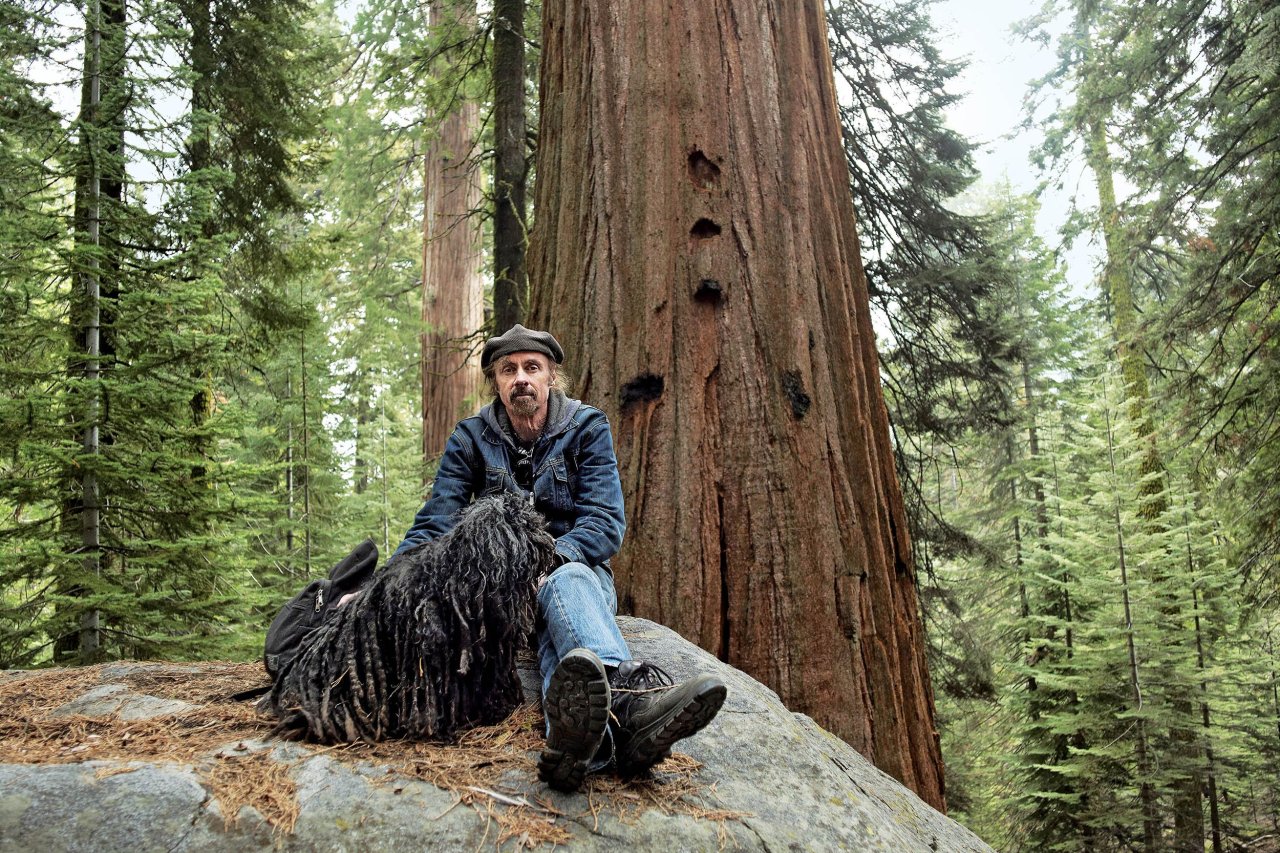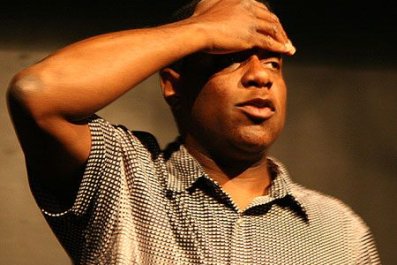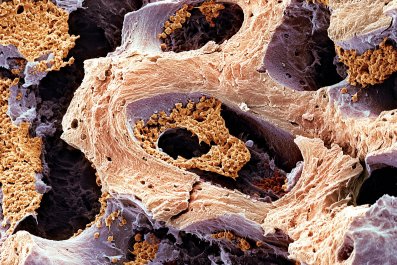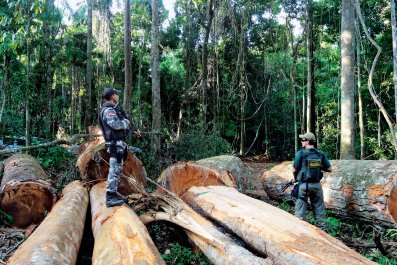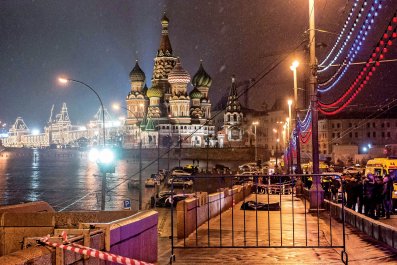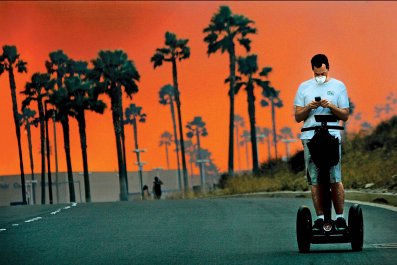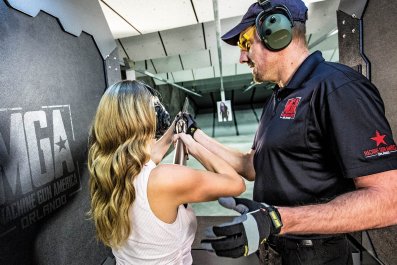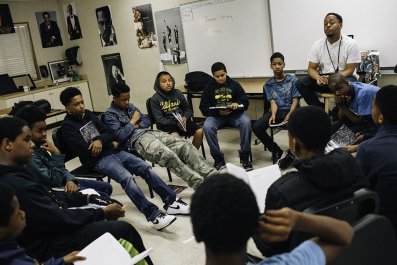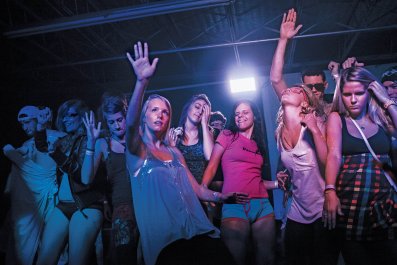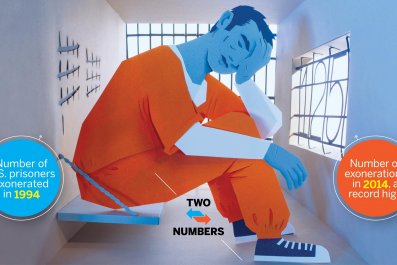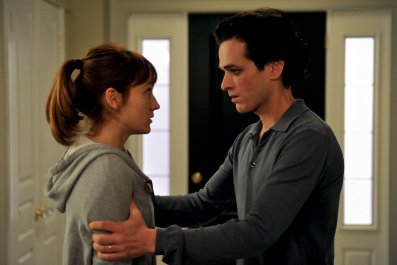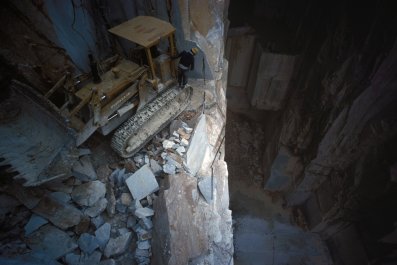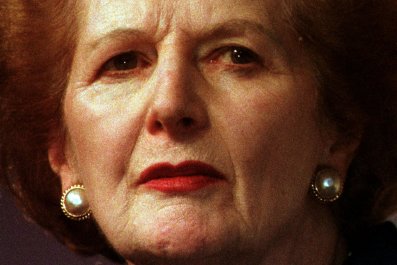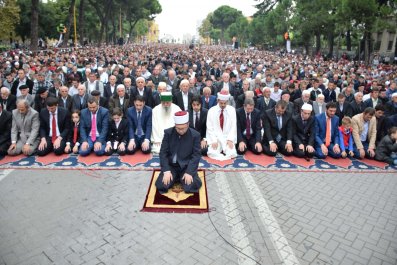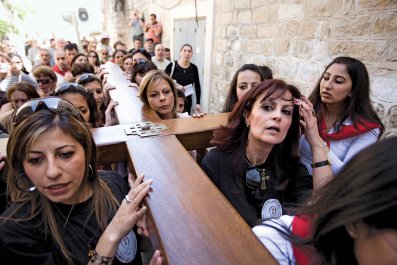Before I really knew California, I thought the state ended more or less at the northern terminus of the Golden Gate Bridge: There were the Muir Woods, the Napa vineyards—and then Oregon. But that's silly; there is much more land to go before the border, a vastness unimaginable to city slickers for whom three blocks is an adventure. Once, in the town of Weed, just south of the Oregon border, I walked into a public bathroom to find, reposing on the porcelain lip of the sink, a glass jar of, well, you know. The ample buds of sticky-icky sat there as innocently as a soap dish. I wasn't in San Francisco anymore.
T.C. Boyle's new novel, The Harder They Come, is set in this California well north of Frisco, a damp, forested land of burned-out hippies, desperadoes, back-to-the-landers, libertarians and people who were born around there and, caught in life's unpredictable eddies, never quite escaped. This is the California chugging along on a green economy, of sorts. "Weed," Boyle explains. "The great lure of the North Coast, the Gold Coast, Pot Alley. They grew grapes in the Anderson Valley, but they grew pot in the hills."
Among the region's natives is Sten Stensen, who served in Vietnam and later ascended to the "great and shining plateau of school principal" in "the sleepy lumber town of Fort Bragg." At the beginning of the novel, he is in a bus jouncing through Costa Rica, the rickety vehicle full of vacationers who are pallid and fanny-packed and "pre-dead"—that is, retired. But Sten, at least, is not quite ready for the grave. The set piece that inaugurates The Harder They Come has the day-trippers ambushed by three robbers in a glade where they were supposed to begin a nature walk. Using his old close-combat skills, Sten kills one of the criminals with his bare hands, instantly becoming a hero among the middle-aged whites with whom he's been lazily sailing the Caribbean. The story follows him back home to Mendocino County, where it becomes big news.
The heroic glow does not last for long. It is darkened by the recrudescence of Adam, Sten's only child. His arrival signals the central conflict of the novel, the struggle between father and son, between the unthinking wildness of youth and the settled wisdom of age, between two visions of California, one a land for men of strength and conviction, the other a constellation of farmers' markets and carbon-neutral brew pubs.
Adam is one of the most vivid characters in recent American fiction, a perversion of every yuppie ideal of sound parenting, a nightmare from which his parents are unable to wake (Sten's wife, Carolee, never quite comes into focus). If you're at all familiar with Boyle's oeuvre, you know he loves little more than shredding the gossamer illusions behind which his characters—and his readers—hide. Adam is that serrated edge, tearing apart the bourgeois comforts in which his parents have long coddled themselves.
Once, Adam was "an inveterate doper who wore Burning Spear T-shirts and affected a Rasta accent." But then something in his brain came loose. He succumbed to paranoia, specifically an anti-Chinese sort alluding to the heinous "Yellow Peril" laws buried deep in California's historic subconscious. High on 'shrooms, he plowed his car into a playground, imagining that it was "some alien Chinese spacecraft just touched down and disgorging all these shrieking little half-sized hostiles who turned out to be kids, just kids." Later, he tried to make a "peace offering" at the Chinese embassy in San Francisco. That also went poorly.
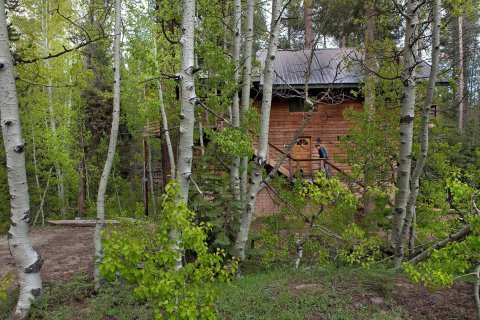
And so Adam has retreated, into himself and into the depthless groves of the Redwood Empire. His fantasy is to live like a long-ago ancestor named John Colter, an utterly intrepid frontiersman and Lewis and Clark expedition member who collected beaver pelts and fought Indians and was afraid neither of killing nor being killed, though he'd rather avoid the latter if he could. A true American, in other words. Or as the novel's epigraph, courtesy of D.H. Lawrence, says, "The essential American soul is hard, isolate, stoic, and a killer. It has never yet melted."
If Adam were the reading kind (he isn't; nor is he much of a talker, his speech consisting mostly of grunts), he'd surely welcome that ferocious description of the national character. "Back to the Stone Age," Adam thinks. "More Colters. Live off the land. And get ready for the hostiles, because they were coming and they would just take what they wanted and nobody to stop them." Until the Chinese invasion, though, he is content to partake in the modern version of Colter's beaver pelt collecting: growing opium.
Adam's troubled soul is infused with some of the ugliest impulses in American society, including a fear of foreigners and a lust for violence. He is like a nascent Kurtz, deep in the heart of darkness, only without a single acolyte. He would be utterly unlikable if here were not so obviously ill; Adam's psychic vulnerability at least makes him sympathetic. So does the monstrous paradox of his desire to purge himself of society's bullshit, which only leads to bullshit of his own creation. Even his own name sounds, in his ears, derivative. "Adam was the original man," he laments, "and I'm not the original anything."
Adam finds shelter in the ample bosom of Sara Hovarty Jennings, a horse groomer who belongs to the Sovereign Citizen Movement and harbors deep-seated, deeply naive views about the "U.S. Illegitimate Government of America the Corporate," and in particular its manifestation in California, "the ultimate nanny state, everything you did short of drawing breath regulated through the roof, a list of no's half a mile long posted on every street corner." Her uncompromising, pedantic libertarian ethos (think Ron Paul as a high schooler tripping on Twizzlers) doesn't go over well with the cops, judges and other organs of authority of the aforementioned rapacious and purportedly illegal federal/state/municipal apparatus.
Spoiler alert: Shit gets real. And then it gets real bad. Adam is haunting the woods with his Norinco SKS Sporter assault rifle (ironically, made by a Chinese gunsmith), trying to get a nascent opium-growing operation to take root, so to speak. Meanwhile, there may be Mexicans growing weed in those same redwood groves. A group of xenophobic sylvan guardians, Sten among them, sets out in search of the purported Mexican grow. Sara has freed her dog, a yapping, dreadlocked pup named Kutya, from the local pound, where he was held because he lacked his rabies shot. She and Adam are both on the lam, though for different reasons. (Their romance is almost entirely physical and hence not entirely believable: Despite their shared anti-government impulses, they never connect on a plane above the carnal.)
True acolytes of Boyle's fiction will recall 1987's World's End, a dexterous exploration of the history of the Hudson River Valley that vacillated with remarkable fluidity between 17th-century Dutch country squires and their direct 20th-century descendants. It is one of the few historical novels I've read that is neither kitschy nor sunk by the weight of time. The Harder They Come (the 15th novel from Boyle, who has also published 10 short story collections) touches upon many similar themes, especially the Nietzschean notion of recurrent time, history always coming back to wallop the present. In both novels, Boyle is intrigued by the vestiges of the early American spirit and how it manifests today. A child of the 1960s (he graduated from college in 1968), he is also concerned with the long chill that followed the Summer of Love, the wane of that era's revolutionary impulses into the familiar corporatist spirit that may well be the covetous essence of the American soul.
About a decade younger than Thomas Pynchon, Boyle is his less cerebral, less paranoid sibling, equally interested in the shortcomings of the American project, the shadowy valleys of the national spirit where a merely good novelist will not tread. Boyle, though, is the more readable of the two, more pleasurable on the page, less insular in his occupations. Pynchon has also set a book in far northern California: 1990's dreary Vineland, overrun by ninjas and zombies. It is not a believable California, a funhouse whose mirrors are cracked.
Fifteen years ago, Boyle told The Paris Review that he was "writing novels of social engagement," noting some of the "cheerful" themes of the recent Tortilla Curtain and A Friend of the Earth: "the insoluble problems of environmental degradation, overpopulation, and the imminent collapse of the biosphere." These same concerns appear in The Harder They Come, along with those of generational misunderstanding, economic inequality and good old racism.
It is not a cheerful book. The best ones never are.



